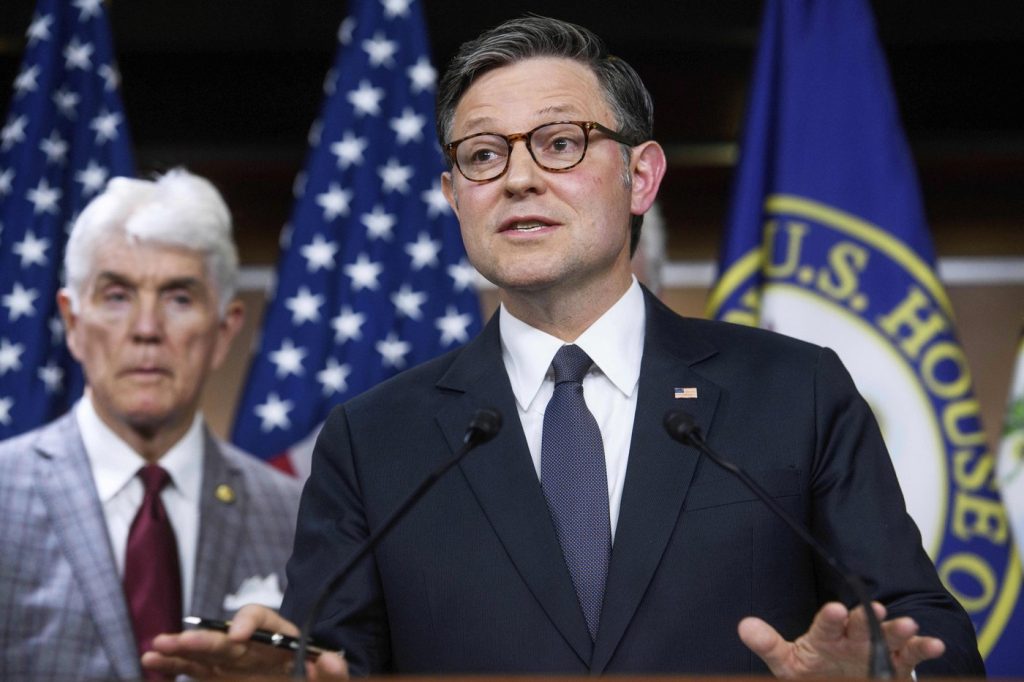Days before the unveiling of a significant tax cut plan by Republicans, Rep. Jason Smith, the chairman of the Ways and Means Committee, met with President Donald Trump at the White House to review the legislation "line by line." Smith noted that Trump was pleased with the content of the proposal, which carries his influence, starting with its title: the "One Big Beautiful Bill Act."
The proposed legislation reflects many of Trump's campaign commitments, such as temporarily eliminating taxes on overtime and tips for certain workers. It introduces a new $10,000 tax break for auto loan interest on American-made cars and establishes a tax-free "MAGA account"—an acronym for "Money Accounts for Growth and Advancement"—which would contribute $1,000 to newborns during Trump's potential second term.
This legislative package, which spans an impressive 1,116 pages, includes more than $5 trillion in tax cuts. The costs are partially offset by reductions in spending and modifications to the tax code. The plan seeks to make permanent the tax reductions implemented during Trump's first term, while also decreasing funding for social programs related to food assistance, college financing, and environmental protections.
Despite the ambitious agenda, divisions among Republicans have surfaced, particularly between those focused on federal deficits and those concerned about the repercussions of cuts in their districts. Trump's role is critical here, as he often acts as a "closer" to sway wavering votes in favor of the bill.
House Majority Leader Steve Scalise announced that Trump has been involved in discussions, proactively offering to talk to any member of Congress who needs persuasion. With Speaker Mike Johnson entrenched in negotiations, he is maintaining a line of communication with Trump, who remains engaged despite a recent visit to the Middle East.
The Republican tax package has already faced challenges, as conservative members of the party postponed its advancement from the House Budget Committee demanding more aggressive Medicaid reforms and the repeal of Biden-era green energy credits. Trump has made his discontent clear, emphasizing on social media that "GRANDSTANDERS" are not needed in the party and urging members to focus on getting the job done.
As negotiations are anticipated to continue into the weekend, Rep. Mike Rogers expressed optimism, believing that once Trump starts reaching out to doubtful lawmakers, the package will gain traction. His approach of engaging members personally is expected to mutually benefit both Trump's influence within the party and the bill's progress.
In contrast to Trump's first term, where there was a lack of coordination leading to a rushed tax package, this time around there has been a more structured framework for legislative strategy. White House aides are actively collaborating with GOP lawmakers throughout the drafting process, making sure all party priorities are aligned before presenting them as a single cohesive package.
While Senate Republicans had initially suggested a bifurcated approach, favoring immediate funding for the Pentagon and immigration initiatives over the tax bill, Trump ultimately supported a singular process, aligning with House Republicans' insistence on having a unified front. Democrats unanimously oppose the package, framing it as a benefit for the wealthy at the expense of essential social services.
Rep. Pramila Jayapal labeled the legislation as a "big, beautiful betrayal," highlighting Democratic concerns regarding healthcare and social safety nets. However, Republicans are eager to move forward, aiming to have the tax package ready for the Senate, hoping to achieve a resolution by the Fourth of July.
As the legislative momentum builds, there is an expectation that once Trump is fully engaged, support among hesitant Republicans will solidify, enabling the bill to advance effectively through Congress.











